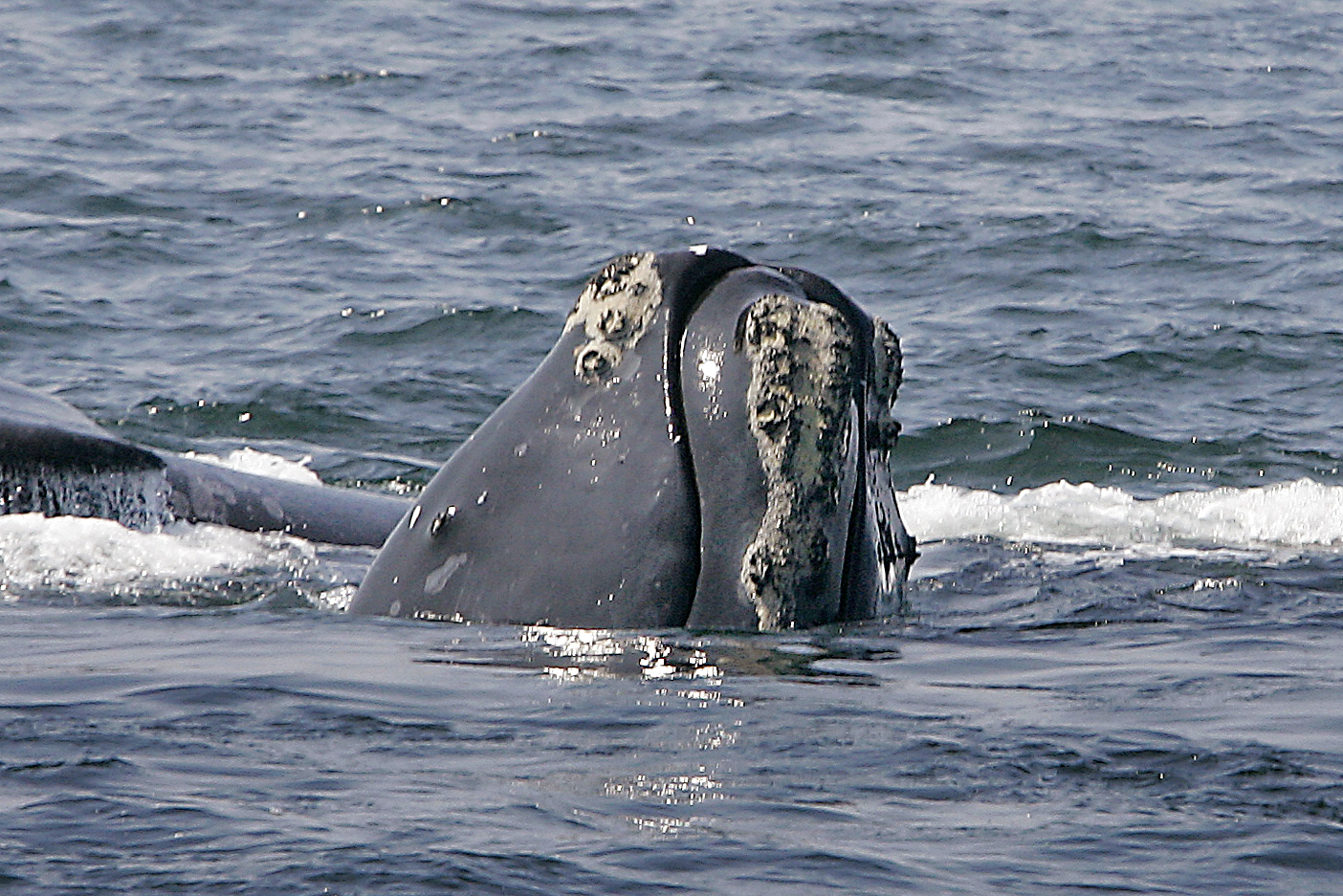No calves were born this winter to critically endangered North Atlantic right whales


A free daily email with the biggest news stories of the day – and the best features from TheWeek.com
You are now subscribed
Your newsletter sign-up was successful
Trained spotters have been unable to find any mother-and-calf pairs of right whales off the coasts of Georgia and Florida this calving season, causing researchers to worry even more about the critically endangered species.
"It's a pivotal moment for right whales," Barb Zoodsma, head of the right whale recovery program in the U.S. Southeast for the National Marine Fisheries Service, told The Associated Press. "If we don't get serious and figure this out, it very well could be the beginning of the end." The spotters, who look for whales from the air, will stop surveying for the winter on Saturday; Zoodsma said if there are no last-minute sightings, as expected, this will be the first time zero births were recorded since survey flights started in 1989.
An estimated 450 North Atlantic right whales remain in the wild. Over the last three decades, an average of 17 right whales were born every year, but 2017 was a particularly bad year — only five births were recorded, while 17 whales washed up dead on the shores of the U.S. and Canada. "It is truly alarming," scientist Philip Hamilton of the New England Aquarium told AP. "Following a year of such high mortality, it's clear the population can't sustain that trajectory."
The Week
Escape your echo chamber. Get the facts behind the news, plus analysis from multiple perspectives.

Sign up for The Week's Free Newsletters
From our morning news briefing to a weekly Good News Newsletter, get the best of The Week delivered directly to your inbox.
From our morning news briefing to a weekly Good News Newsletter, get the best of The Week delivered directly to your inbox.
There's hope that there were some births off of the Carolinas and Virginia, where scientists weren't doing much spotting, and also that the whales are just experiencing a lull in births because females usually don't become pregnant until more than three years after their last birth. To protect the right whales, scientists recommend speed restrictions on ships in areas where whales are often found, and commercial fishermen are trying nets that break easily so whales don't get tangled. You can read more on the right whale and efforts to save the rare species at The Associated Press.
A free daily email with the biggest news stories of the day – and the best features from TheWeek.com
Catherine Garcia has worked as a senior writer at The Week since 2014. Her writing and reporting have appeared in Entertainment Weekly, The New York Times, Wirecutter, NBC News and "The Book of Jezebel," among others. She's a graduate of the University of Redlands and the Columbia University Graduate School of Journalism.
-
 6 exquisite homes with vast acreage
6 exquisite homes with vast acreageFeature Featuring an off-the-grid contemporary home in New Mexico and lakefront farmhouse in Massachusetts
-
 Film reviews: ‘Wuthering Heights,’ ‘Good Luck, Have Fun, Don’t Die,’ and ‘Sirat’
Film reviews: ‘Wuthering Heights,’ ‘Good Luck, Have Fun, Don’t Die,’ and ‘Sirat’Feature An inconvenient love torments a would-be couple, a gonzo time traveler seeks to save humanity from AI, and a father’s desperate search goes deeply sideways
-
 Political cartoons for February 16
Political cartoons for February 16Cartoons Monday’s political cartoons include President's Day, a valentine from the Epstein files, and more
-
 Nobody seems surprised Wagner's Prigozhin died under suspicious circumstances
Nobody seems surprised Wagner's Prigozhin died under suspicious circumstancesSpeed Read
-
 Western mountain climbers allegedly left Pakistani porter to die on K2
Western mountain climbers allegedly left Pakistani porter to die on K2Speed Read
-
 'Circular saw blades' divide controversial Rio Grande buoys installed by Texas governor
'Circular saw blades' divide controversial Rio Grande buoys installed by Texas governorSpeed Read
-
 Los Angeles city workers stage 1-day walkout over labor conditions
Los Angeles city workers stage 1-day walkout over labor conditionsSpeed Read
-
 Mega Millions jackpot climbs to an estimated $1.55 billion
Mega Millions jackpot climbs to an estimated $1.55 billionSpeed Read
-
 Bangladesh dealing with worst dengue fever outbreak on record
Bangladesh dealing with worst dengue fever outbreak on recordSpeed Read
-
 Glacial outburst flooding in Juneau destroys homes
Glacial outburst flooding in Juneau destroys homesSpeed Read
-
 Scotland seeking 'monster hunters' to search for fabled Loch Ness creature
Scotland seeking 'monster hunters' to search for fabled Loch Ness creatureSpeed Read
